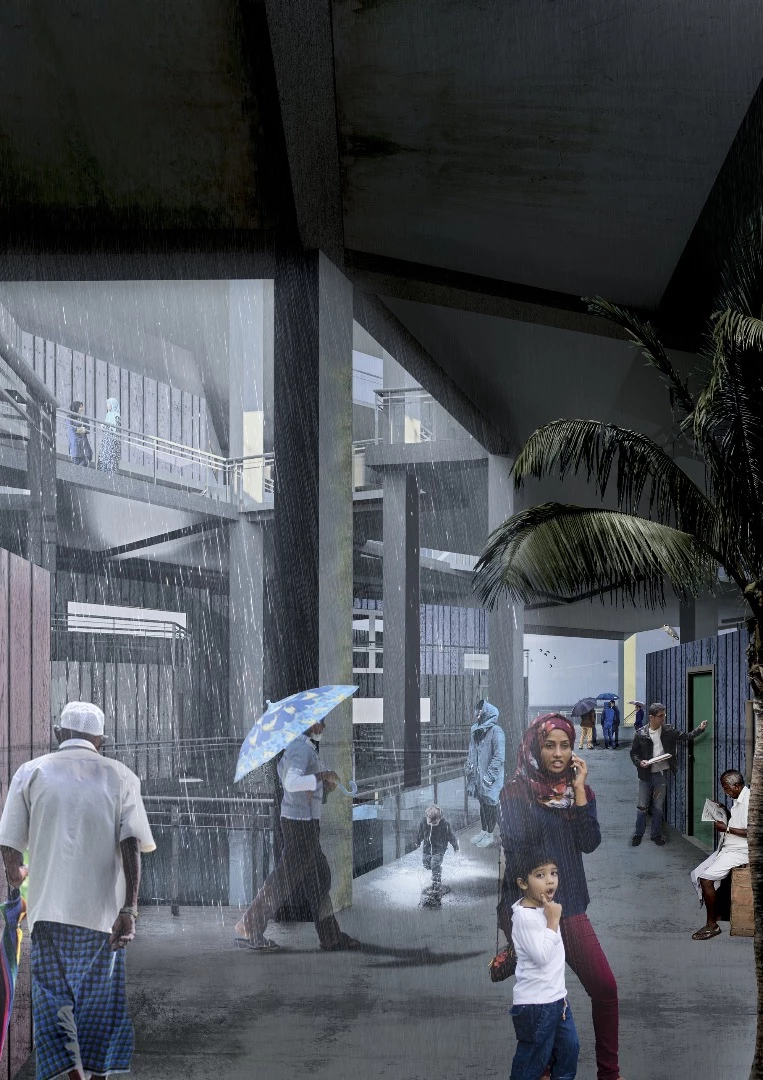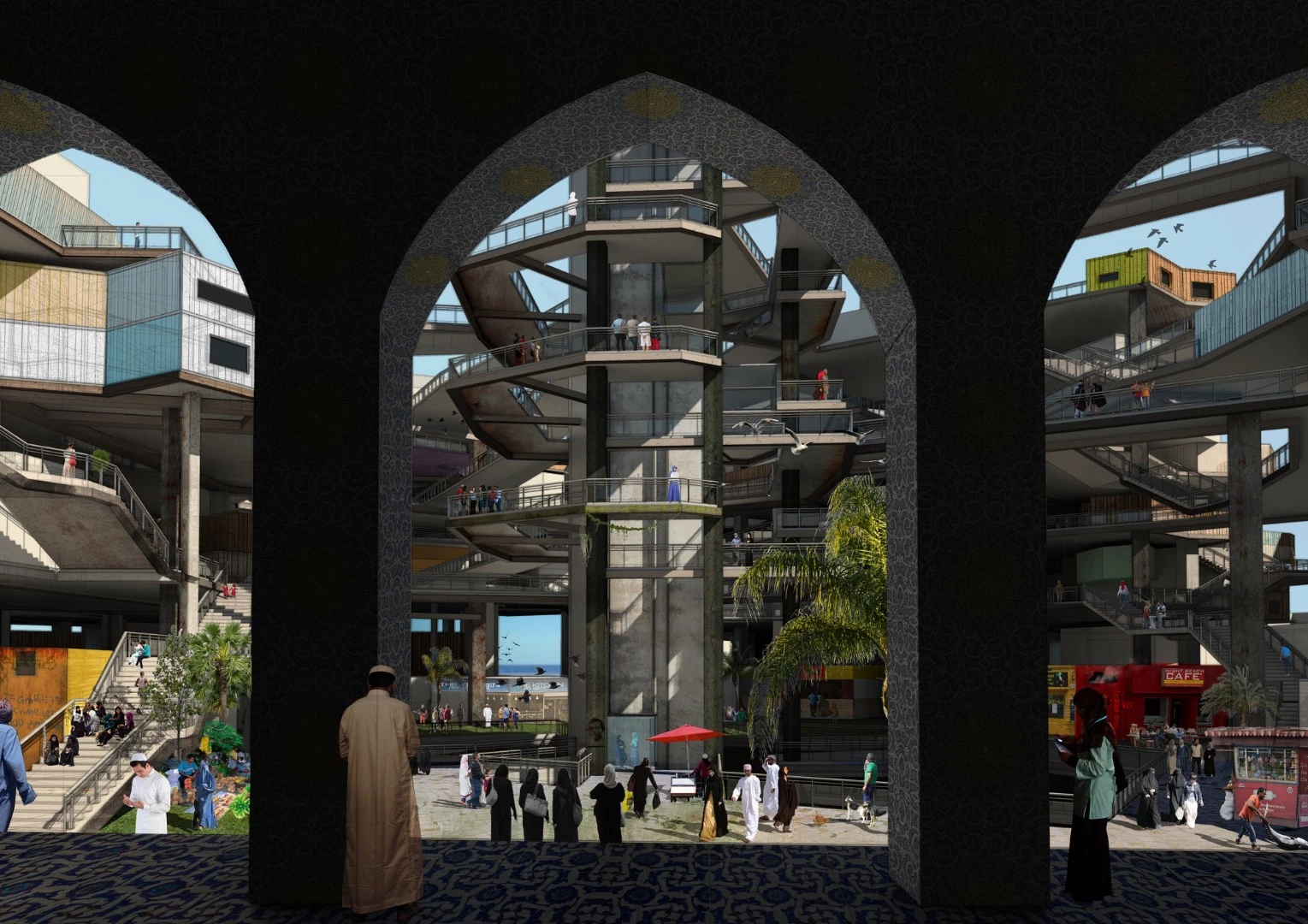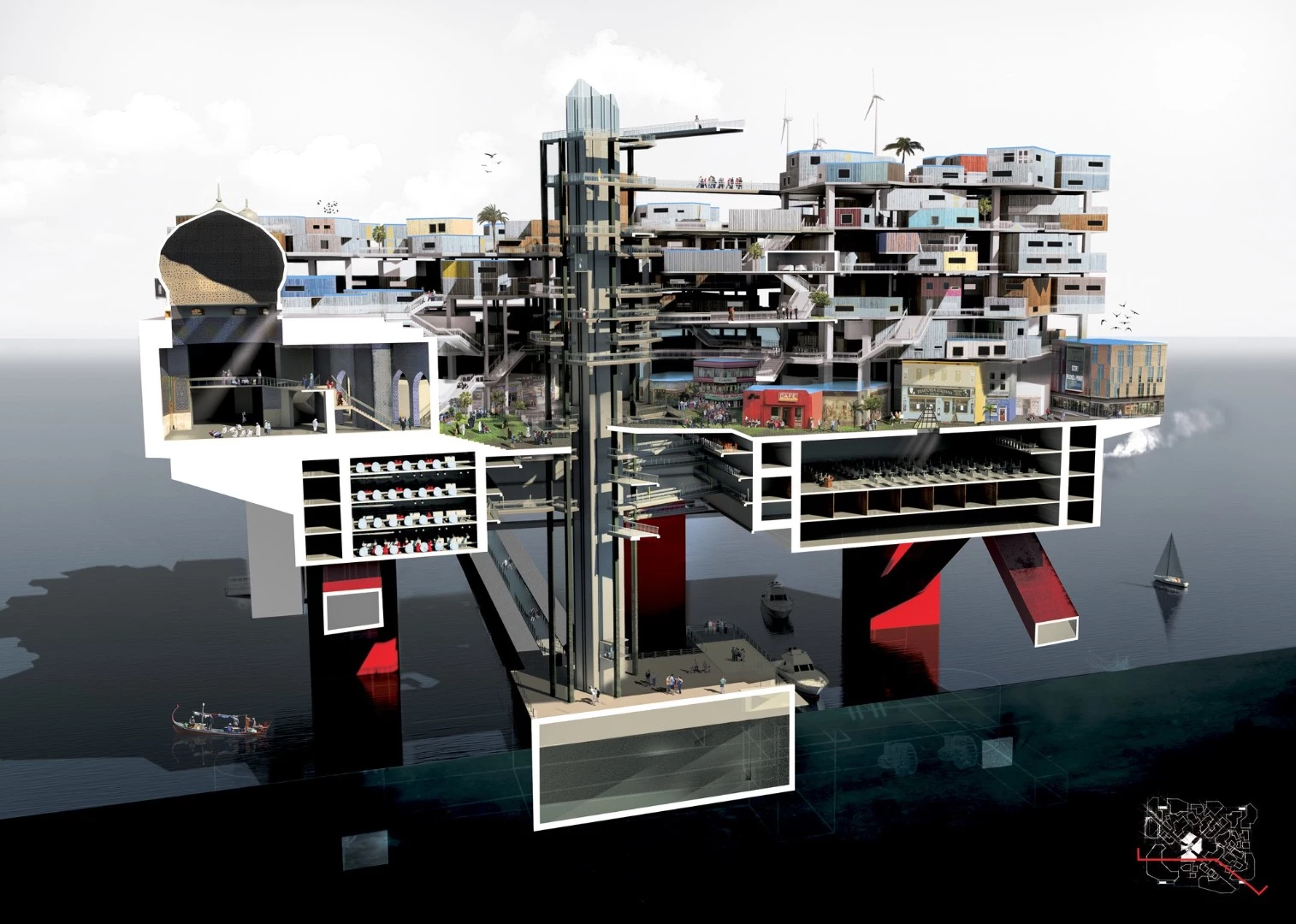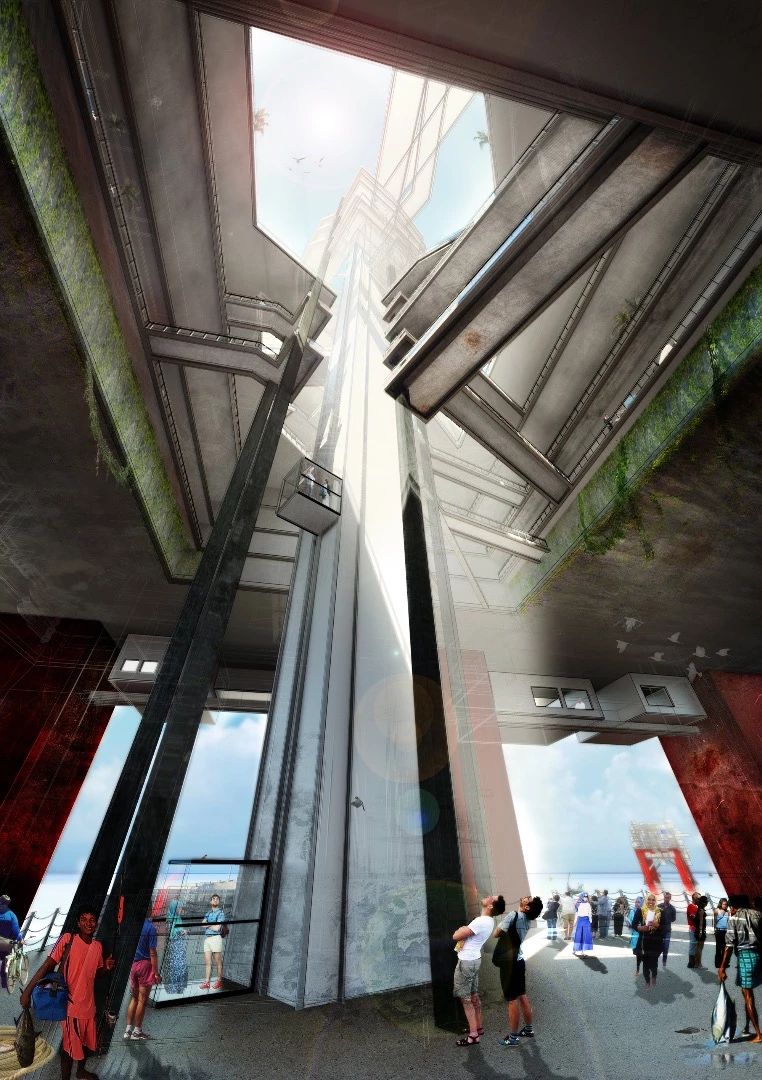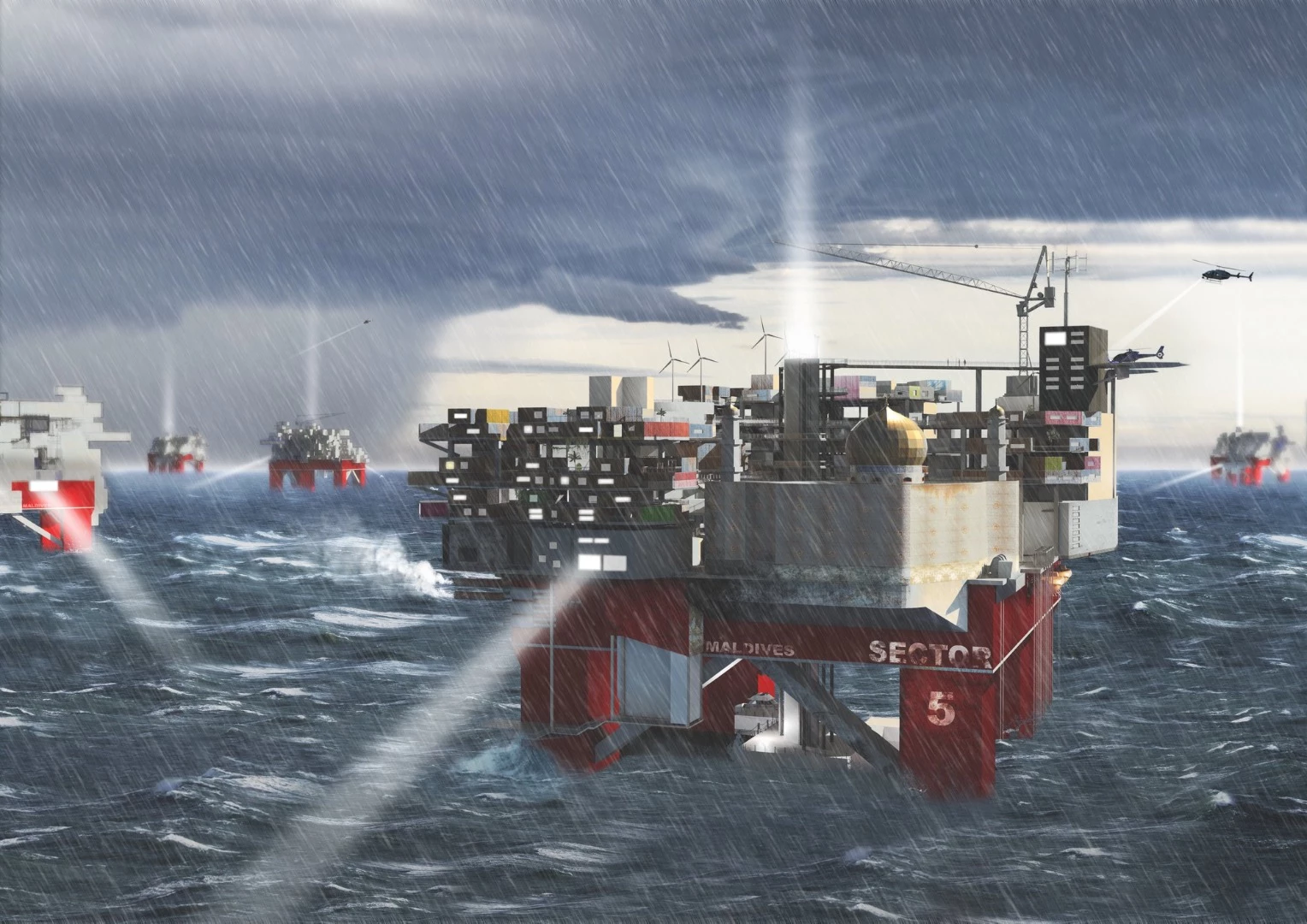Taking the view that rising sea levels caused by climate change could eventually result in the loss of the low-lying island country of the Maldives, architecture student Mayank Thammalla envisions moving the country's entire population onto existing oil rigs.
Designed for Thammalla's final year Masters of Architecture thesis, Swim or Sink isn't meant to be a final plan ready for implementation, and is best considered food-for-thought as to the role architects might take in mitigating the effects of climate change.
"I was interested in looking at the future of the Maldives because their situation is very unique," explains Thammalla. "They are a nation that can lose their entire identity, a 2,000 year old culture and their geographical position on the planet, due to projected sea level rise within the next 100 years. The Maldivians are talking about purchasing land in Australia, what will the costs be there?
"A loss of their rich culture, a loss of their day to day activities, and a loss of their presence in their natural surrounding oceanic environment. All that said, I am not sure about all the political and economic factors that might possibly be involved."

Thammalla imagines moving around 400,000 people onto huge semi-submersible oil rigs. Taking the place of the Maldives' beautiful natural islands, the rigs would include cinemas, mosques, markets, and retail spaces. Housing would be constructed using traditional local materials, and though the rigs have no airport as such, existing helipads could be used for "island hopping."
Thammalla also posits that the man-made islands would protect inhabitants from natural disasters like tsunamis. While no sustainable technology is mentioned, making the oil rig communities self-sufficient energy-wise and even food-wise seems a relatively small challenge compared to more pressing issues, like sourcing enough huge unused oil rigs to house such a large number of people, for example.
Source: Mayank Thammalla

